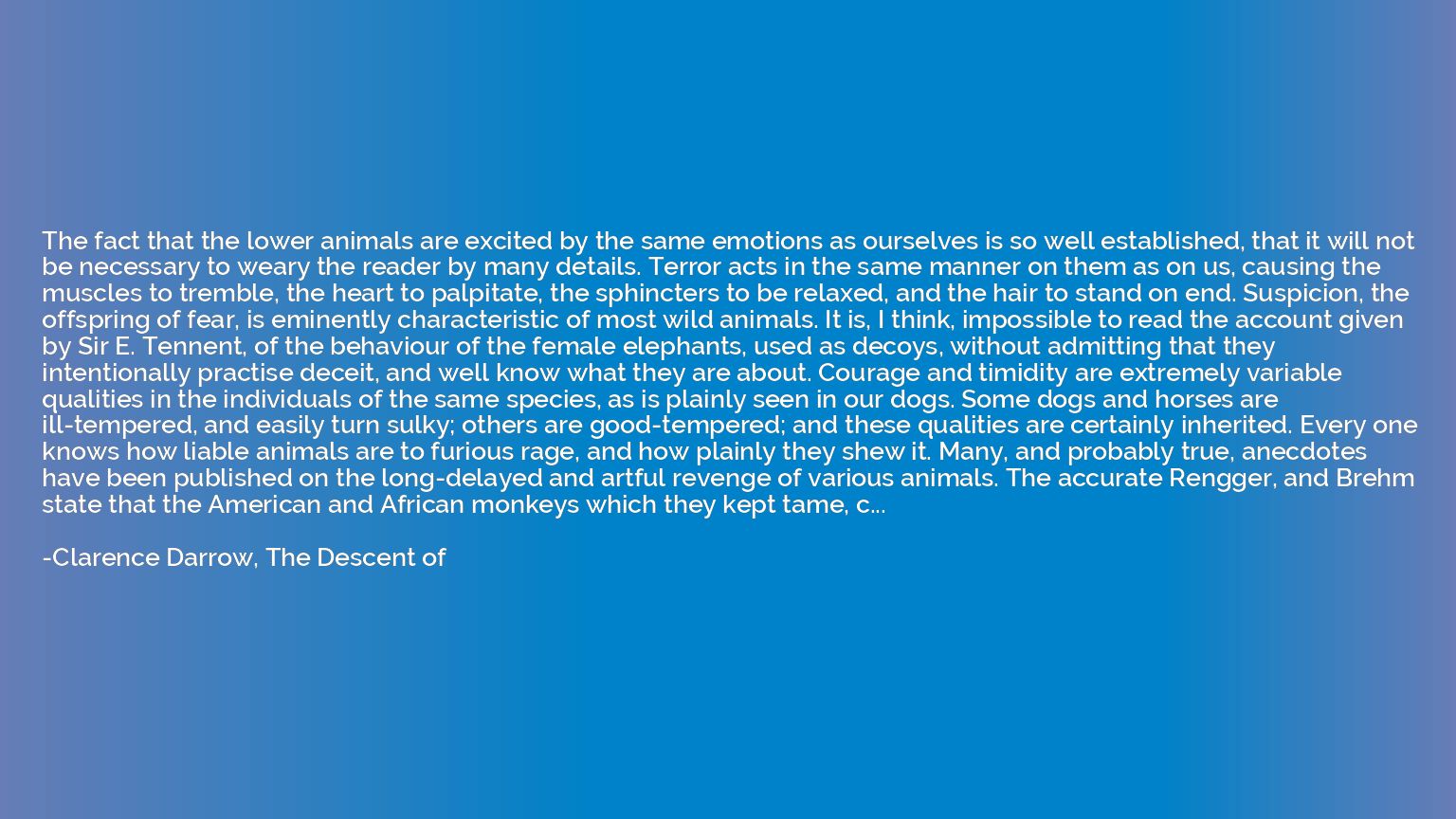Clarence Darrow, The Descent of Quotes
A collection of quotes by Clarence Darrow, The Descent of .
Clarence Darrow, American lawyer and leading figure in the early 20th-century legal scene, was born on April 18, 1857, in Kinsman, Ohio. Renowned for his skills in criminal defense and his progressive beliefs, Darrow is perhaps best known for his involvement in the Scopes Monkey Trial. This famous trial, which took place in 1925, centered around the teaching of evolution in public schools.
Darrow graduated from the University of Michigan Law School in 1878 and began his legal career working for a railroad law firm. However, he soon shifted his focus to criminal defense, gaining a reputation as a skilled and zealous advocate for the underprivileged. Darrow's progressive views led him to take on many controversial cases, defending those accused of murder, labor organizers, and individuals caught up in political movements.
His defense of John Scopes, a teacher accused of violating Tennessee's law against teaching evolution, showcased Darrow's commitment to intellectual freedom and his opposition to religious fundamentalism. Through his arguments, Darrow challenged the conservative establishment and the notion that science should be suppressed in the classroom.
Darrow's career was marked by high-profile cases, persuasive oratory skills, and a commitment to justice for all. His legacy as a champion for civil liberties during a politically and socially tumultuous era of American history endures. Clarence Darrow passed away on March 13, 1938, in Chicago, leaving behind a lasting impact on the legal profession and the fight for social justice.



